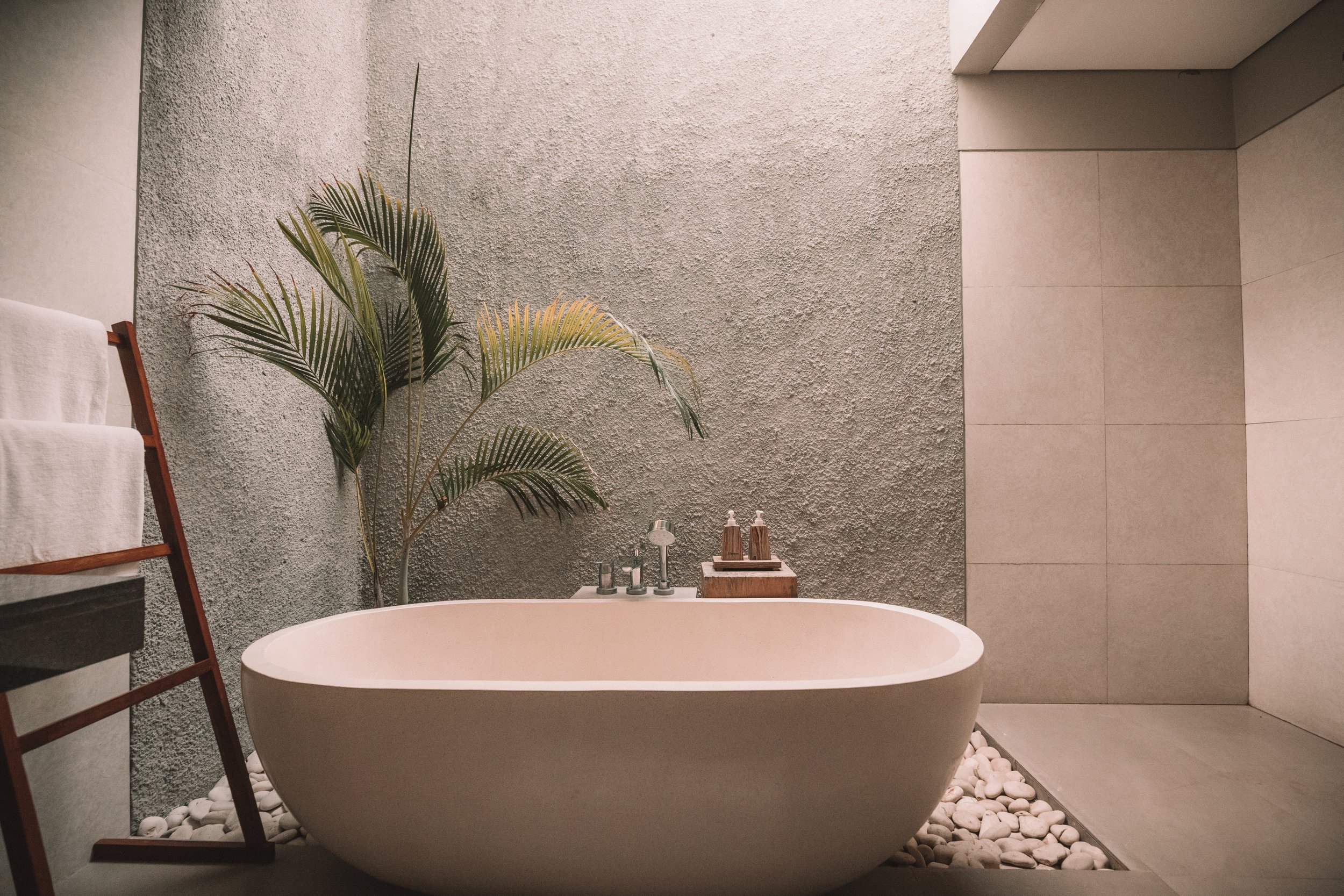National Nap Day: Get Your Sleep On
/It’s #nationalnappingday today, but getting a good night’s sleep every day can do some amazing things for your life… so we put together 10 of the best tips to help you catch some much needed zzz’s on the reg. (Did you know a moderately sleep-deprived body can act the same as an intoxicated body??? *takes nap*)
#TeamNoScreen
You already know this is what you should be doing… and trust us, we know it’s hard to put in practice. Whether you are trying to get just one more thing done before bed, or trying to relax by surfing social media… it isn’t helping your sleep. You really shouldn’t be looking at your phone for a full two hours before going to sleep. We know what you’re thinking… TWO HOURS?! Seems a little extra. But it’s not. You don’t have to go for it all at once, you can start with 30 minutes for one week, and gradually increase to the full two hours. Eventually, it’s going to feel second-nature and will do LOADS for your sleep.
Bonus tip: Activating night-mode for the hour before you put your phone down for the night can really help your brain. (It reduces blue light, which inhibits melatonin production.)
Catch some rays to catch better zzz’s…
“I wanna soak up the suuuun…” and you should! Getting outside during the daytime helps put your body’s circadian rhythm in check. Specifically, you should aim to expose yourself to direct sunlight within the first hour that you wake up. Going for a quick 30 minute walk is an easy way to do this! This will help jump-start your day and tells your body that it’s time to wake up, which will then make it easier to tell it to go to sleep later on!
Make sure your bedroom sparks joy
Have you been looking for an excuse to redecorate your bedroom? Well here it is: having a bedroom that you love will actually help you sleep better. If your bedroom stimulates stress, it’s going to negatively affect your sleep. Combat that by putting some thought behind what your ideal bedroom would look like, and then create it! Hang some of your favorite photos, get some toxin-reducing plants, paint the walls a nice relaxing color, reduce clutter, or display some inspo to keep you motivated. There aren’t any super-strict rules here, just make sure that whatever you choose to do improves your space and makes you happy. Time to get your zen on.
Bonus tip: In addition to ensuring you feel relaxed when you step into your bedroom, you should also make sure it’s dark, quiet, and cool when you are ready to sleep. Get some blackout curtains, make sure to regulate the temperature, and remove any excess noise before going to sleep.
If you’re going to get caffeinated, do it early
We’ve got nothing against a nice cup of joe in the mornings, (enjoy your coffee outside to practice tip #2!) But after 2pm… consider yourself cut-off. Studies have shown that drinking caffeine within six hours of going to bed can make you lose a full hour of sleep… ouch. If you already have too much to do and too little time, losing that precious hour will really hurt the next day. Instead of reaching for more coffee in the afternoon, enjoy a cup of decaf instead, or just opt for water and improve your hydration! Win-win.
Make your morning more peaceful by preparing the night before
In the words of Ben Franklin, failure to prepare is preparing to fail. Set yourself up for success by writing out your intensions the night before, and if your brain is really buzzing, you can even write your to-do list for the next day. This lets you empty out your brain and relax your mind before bed. Make things even easier for your morning-self by picking out your clothes for the next day, packing up your leftover dinner for lunch tomorrow, and preparing as much of your breakfast as possible.
Meditate
Meditating is gaining momentum everywhere and we are here for it. There are countless studies that show the positive effects that meditation has on both your mind and body. One of them: getting a better night’s sleep! It helps you let go of the day’s stresses and prepares your mind to truly relax. If you already have a favorite meditation app or resource, see what they offer for bedtime. Or if you are a beginner, you can start off by simply counting backwards from 100 and restarting every time you lose track. Easy.
Consistency is key
Going to bed and waking up at the same time every day will help keep your body-clock in check. This will naturally help you fall asleep quickly when it’s time to go to bed, and it will help you wake up with ease... eventually without an alarm. Talk about living your best life.
Your bed is for sleeping
Cue science… If you only use your bed for sleeping, you will practice positive Cognitive Behavioral Therapy. Basically, it means that you’ll train your brain to understand that as soon as your head hits the pillow, it’s time to shut down and rest. Break the habit of eating or working from your bed… that will teach your brain that just because you’re in your bed, it doesn’t necessarily mean it’s time to sleep. Thumbs down.
When in doubt, sweat it out
Exercising regularly can dramatically improve not only your sleep quality, but your overall health. It reduces stress, helps you stay alert during the day, and releases endorphins to improve your mood. The magic number… 150. If you aim for 150 minutes of physical activity per week, (that breaks down to about 25 minutes/day,) you will see the benefits in your sleep.
R-E-L-A-X
This one might be obvious… but if you’ve had a particularly rough day, you may want to take some extra steps to give yourself some TLC with a little R&R. Take a warm bath, light your favorite candle, read a book, drink some tea, listen to soothing music… we’re getting sleepy just thinking about all of these relaxation techniques. Pick the one that works for you, and unwind…
Feeling sleepy yet? Us too. Leave us a comment and let us know which tip you think is going to help you most!
Sources:
1. https://www.sciencenewsforstudents.org/article/evening-screen-time-can-sabotage-sleep
2. http://www.sleepreviewmag.com/2015/05/light-therapy-better-sleep/
https://www.huffingtonpost.com/entry/sunlight-and-sleep_us_59065bebe4b084f59b49fa5a
3. https://www.verywellhealth.com/the-importance-of-your-sleep-environment-3014944
https://bettersleep.org/better-sleep/the-ideal-bedroom/
4. https://www.ncbi.nlm.nih.gov/pubmed/24235903
5. https://psycnet.apa.org/record/2017-47677-001
6. https://www.lifehack.org/397140/supercharge-your-sleep-by-meditating-before-bed
7. https://www.sleepfoundation.org/articles/healthy-sleep-tips
9. https://www.sleepfoundation.org/articles/study-physical-activity-impacts-overall-quality-sleep


